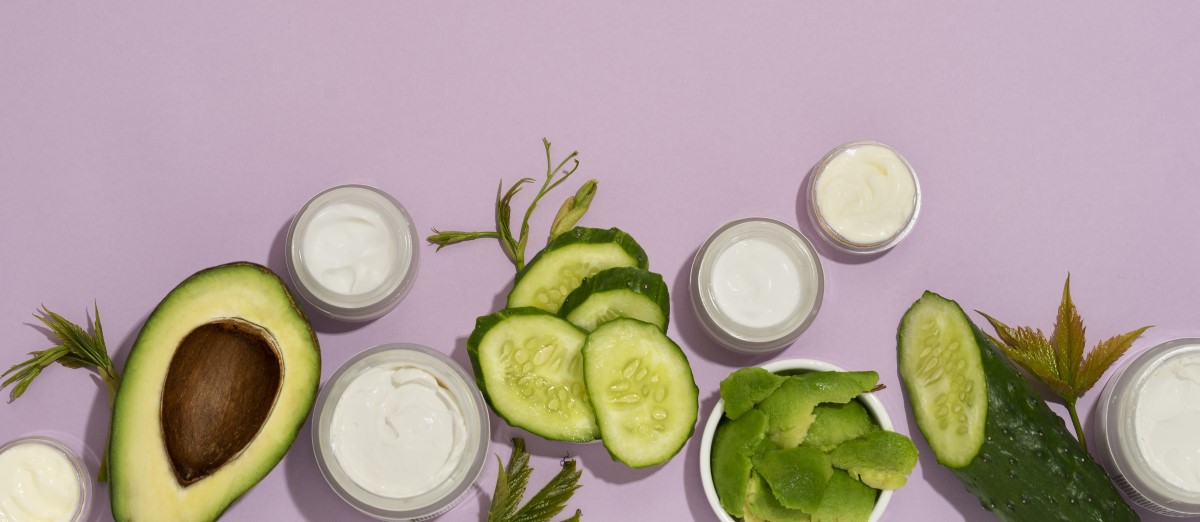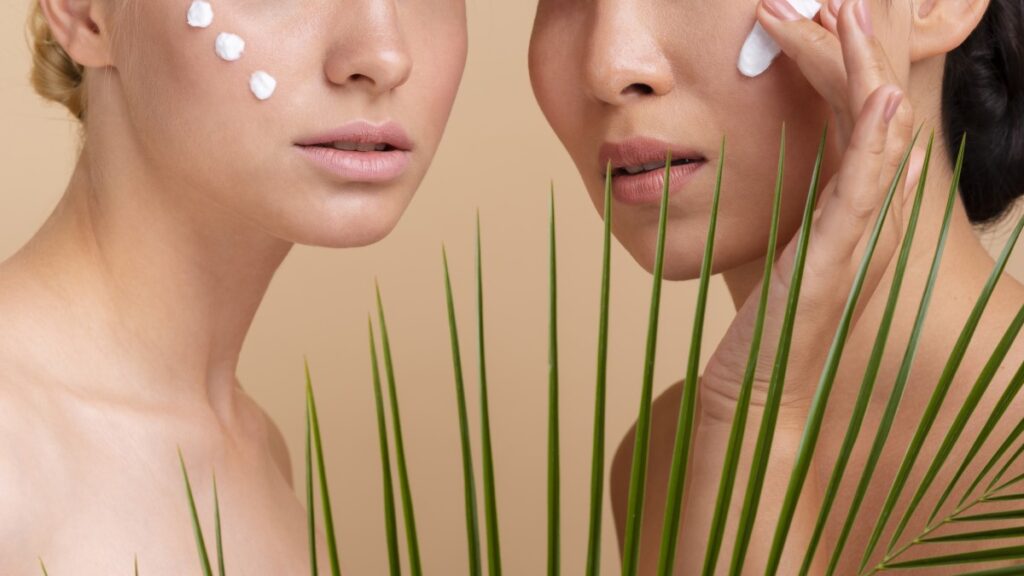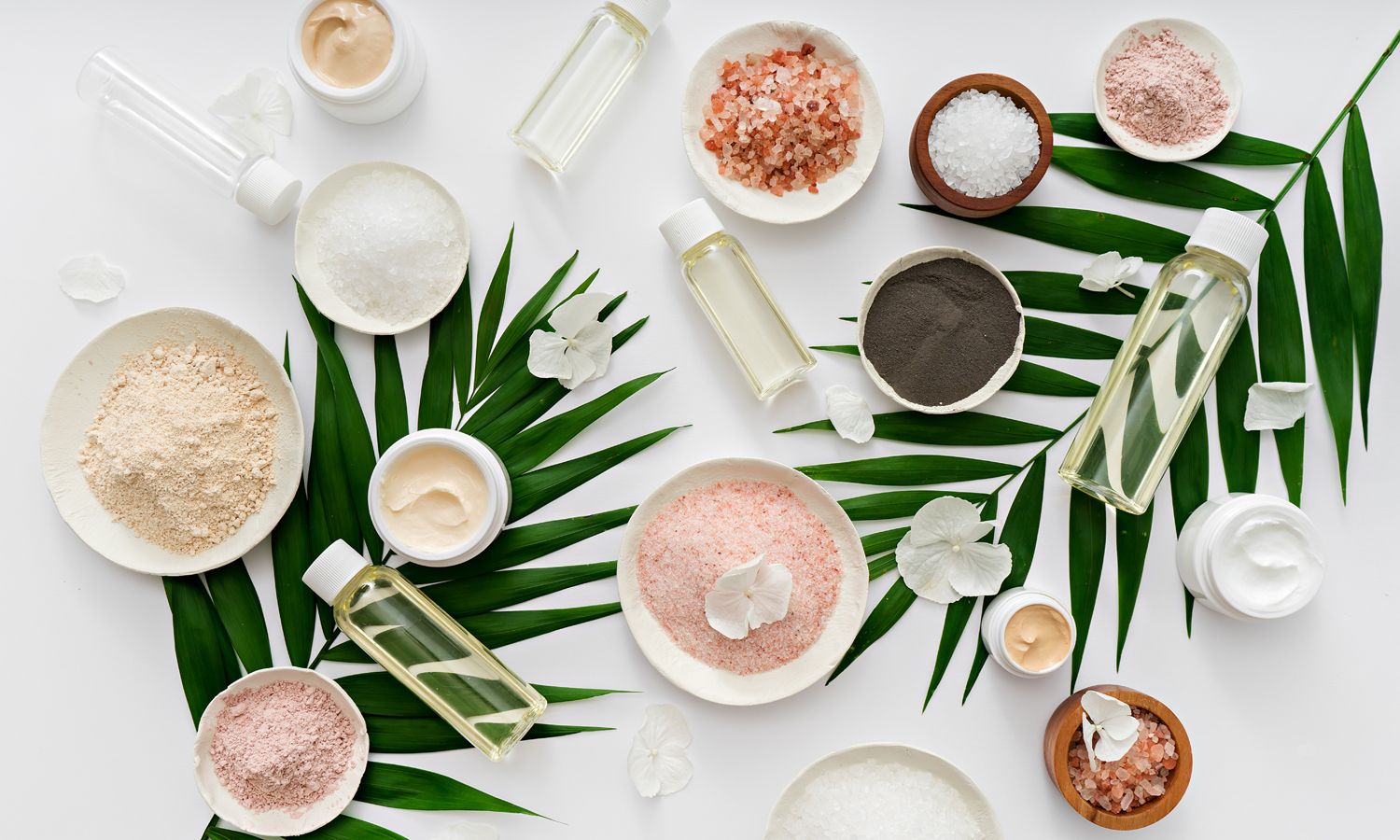With the rising trend of clean beauty, the terms “natural” and “organic” have become increasingly popular in the world of skincare and cosmetics. However, many consumers are still confused about the actual differences between natural and organic beauty products. Both terms are often used interchangeably, but they do not mean the same thing. Understanding the distinction is crucial to making informed choices that align with your values and skincare needs.
In this blog, we’ll dive into the key differences between natural and organic beauty products, what they mean, how they are regulated, and why it matters when you’re shopping for skincare and cosmetics.
What Does "Natural" Mean in Beauty Products?
The term “natural” in the beauty industry refers to products made from ingredients derived from nature—plants, minerals, and sometimes animals. These ingredients are minimally processed, meaning they are as close to their natural state as possible. However, the term “natural” can be vague because there is no strict legal definition or regulation that governs its use in cosmetics.
Many brands label their products as “natural” to signal that their ingredients are less processed or free from synthetic chemicals, but this doesn’t always guarantee the product is completely chemical-free or safe. Some products labeled “natural” might still contain a mix of both natural and synthetic ingredients.

Examples of Natural Ingredients in Beauty Products
- Aloe vera
- Coconut oil
- Shea butter
- Green tea extract
- Jojoba oil
These natural ingredients are often used in skincare products because of their nourishing, hydrating, and healing properties. However, even though they come from nature, natural ingredients can still undergo chemical processes like extraction, filtration, or distillation before they make it into your bottle of skincare.
The Pros and Cons of Natural Beauty Products
Pros:
- Fewer synthetic chemicals: Natural products tend to avoid synthetic additives like parabens, phthalates, and sulfates, which can be harmful to sensitive skin.
- Nourishing properties: Natural ingredients are rich in vitamins, antioxidants, and essential fatty acids that support skin health.
- Eco-friendly: Many natural beauty products focus on sustainability, offering biodegradable packaging and cruelty-free practices.
Cons:
- Lack of regulation: Since “natural” isn’t a regulated term, products labeled as such may still contain artificial preservatives or additives.
- Limited shelf life: Because natural products often avoid synthetic preservatives, they may spoil or expire faster than their synthetic counterparts.
What Does "Organic" Mean in Beauty Products?
The term “organic” in beauty products refers to ingredients that are grown and processed under strict conditions that avoid the use of synthetic fertilizers, pesticides, and genetically modified organisms (GMOs). In contrast to “natural,” the term “organic” is heavily regulated by various certification bodies, such as the USDA (United States Department of Agriculture) in the U.S. or COSMOS in Europe.
To bear an organic label, a beauty product must meet specific criteria:
- 100% Organic: All ingredients in the product must be organic.
- Certified Organic: At least 95% of the ingredients must be organic, with the remaining 5% meeting certain safety standards.
- Made with Organic Ingredients: At least 70% of the ingredients must be organic, but the product cannot use the official organic seal.
The certification process for organic products ensures that they are free from harmful pesticides, synthetic chemicals, and genetically modified ingredients, providing peace of mind to those looking for purer skincare solutions.

Examples of Organic Ingredients in Beauty Products
- Organic coconut oil
- Organic lavender essential oil
- Organic shea butter
- Organic rosehip seed oil
- Organic chamomile extract
These ingredients are organically farmed without the use of synthetic chemicals, offering high purity and safety for those with sensitive or environmentally-conscious preferences.
The Pros and Cons of Organic Beauty Products
Pros:
- Strict regulation: Organic products are rigorously tested and certified, ensuring that the ingredients meet high standards of purity and sustainability.
- No synthetic chemicals: Organic products are free from synthetic pesticides, fertilizers, and GMOs, reducing the risk of skin irritation or long-term harm.
- Environmentally friendly: Organic farming methods promote biodiversity and sustainability, making these products better for the planet.
Cons:
- Higher price point: Due to the cost of organic farming and certification, organic beauty products tend to be more expensive than their natural or synthetic counterparts.
- Limited availability: Not all brands offer fully organic lines, and some products may only feature a few organic ingredients, making it harder to find 100% organic solutions.
Key Differences Between Natural and Organic Beauty Products
- Certification and Regulation: One of the biggest differences between natural and organic beauty products is regulation. Organic products are strictly regulated and certified by bodies such as the USDA or COSMOS, meaning they have to meet certain standards to earn the “organic” label. In contrast, “natural” is a more loosely used term without any strict legal definitions or certifications.
- Ingredients: Organic beauty products are made with ingredients grown without synthetic pesticides, fertilizers, or GMOs. On the other hand, natural products can include ingredients derived from nature but might still contain synthetic substances or chemicals, as long as the base ingredient is natural.
- Environmental Impact: Both natural and organic products tend to be more environmentally friendly than synthetic options, but organic farming methods go a step further by ensuring that no harmful pesticides or chemicals are used in growing the ingredients. Organic certification also encourages sustainable farming practices that protect soil health and biodiversity.
- Price: Because organic farming and certification processes are more expensive, organic beauty products often come with a higher price tag compared to natural products. Natural products may be less costly, but without certification, they don’t guarantee the same level of purity and sustainability.
Why the Difference Matters in Beauty Products
Understanding the difference between natural and organic beauty products can help you make more informed choices, especially if you prioritize certain values such as purity, sustainability, or avoiding synthetic chemicals.
- Skin Sensitivity: If you have sensitive skin, organic products may be the better option because they’re free from synthetic chemicals and additives that can irritate the skin. Organic ingredients are also grown without harsh pesticides or fertilizers, reducing the risk of residue that could trigger a reaction.
- Environmental Consciousness: for eco-conscious consumers, organic beauty products are often a more sustainable choice. Organic farming methods promote soil health, reduce chemical runoff, and support biodiversity. However, many natural beauty products also prioritize sustainability, so it’s worth looking at a brand’s overall commitment to the environment.
- Ingredient Purity: If ingredient purity is important to you, organic beauty products provide more assurance. The rigorous certification process ensures that the product meets strict standards for organic content, while natural products can vary widely in the quality and source of their ingredients.
How to Choose the Right Product for You

Now that you know the difference between natural and organic beauty products, how do you choose the best one for your skincare routine? Here are a few tips to help guide your decision:
- Check the Labels: Look for certifications such as “USDA Organic” or “COSMOS Organic” to ensure that the product meets organic standards. For natural products, check the ingredient list to see how much of it is truly natural and free from synthetic chemicals.
- Consider Your Skin Type: If you have sensitive skin or specific concerns like acne or dryness, opt for organic products with fewer synthetic ingredients. Organic products are less likely to cause irritation due to their purity and lack of harsh chemicals.
- Align with Your Values: If sustainability and environmental impact are important to you, choose organic products that support eco-friendly farming practices. If price is a major consideration, natural products can still offer effective, eco-conscious options without the higher cost of organic certification.
- Do Your Research: Not all “natural” or “organic” claims are created equal. Always research the brand’s sourcing practices and look for transparency in their ingredients and certifications.
Conclusion: Natural vs. Organic – Which Is Better?
Ultimately, both natural and organic beauty products offer distinct benefits depending on your skincare needs and values. Natural products provide a more accessible option for those looking to avoid synthetic chemicals, while organic products offer the highest level of purity and regulation, ensuring that what you’re putting on your skin is free from harmful substances.
The key is understanding what matters most to you. Whether it’s ingredient purity, environmental impact, or price, being informed about the differences between natural and organic products will help you make the best decision for your skin and lifestyle.



